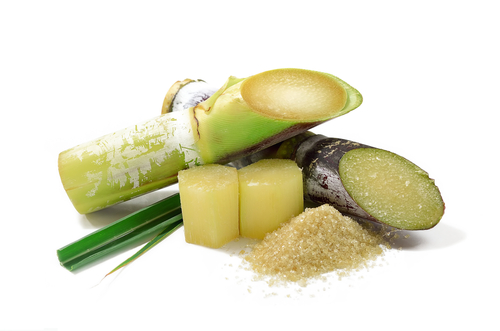Cane sugar can cause a Candida (yeast infection) flare up. Long term Candida that has entered the brain can cause psychotic symptoms. I have had personal experience of this after consuming a high amount of sugar in a drink.

What is psychosis
According to dictionary.com, psychosis is defined as:
1. a mental disorder characterized by symptoms, such as delusions or hallucinations, that indicate impaired contact with reality.
2. any severe form of mental disorder.
A patient on www.doctorspring.com asked a question: “I was diagnosed with psychosis, which I believe was misdiagnosed for candidiasis. I just started taking flukonasol (antifungal medicine) and most of the symptoms are gone. Could I ask for misdiagnosis check?”
The doctor answered: “Yes you are right in stating that candidiasis can cause neuro-psychiatric symptoms. But it is one of the progressed stages of candidiasis. It’s when the candida has entered the brain.”
Candida is a type of yeast that occurs naturally in the intestines and genital tract. In small amounts, candida has no negative effect on the body. However, eating cane sugar and yeast, using antibiotics, chemical toxins in the environment, and using hormone drugs including contraceptives can cause this yeast to overgrow and cause problems in the body. Candida is able to invade the central nervous system and cross the human blood-brain barrier as live pathogens.
In the Johns Hopkins study, researchers discovered that a current or previous infection with Candida albicans appears to be more common in some people with mental illness than people without the condition.
The effects of cane sugar
Ben Michaelis, Ph.D, noticed that after his family ate a high amount of sugar, they showed symptoms of temper tantrums, impulsivity, anger, sadness, mood-swings, and anxiety to an abnormal extent. Except for anxiety, all those symptoms are symptoms of bipolar and other mental illnesses.
Michaelis says: “Although there is no evidence indicating that sugar actually causes mental illness, I am certain that it is a contributing factor. You can think of eating refined sugar like being poor. Being poor doesn’t cause mental illness, but the stresses that exist in poor communities increase the likelihood that mental illness will emerge. Similarly, eating sugar alone will probably not cause you to become depressed, anxious, or have psychotic symptoms, but it almost certainly increase the chances that this will happen.”
Refined sugar causes inflammation of the neurons, which has been suggested as a cause for depression. Sugar has been shown to intensify the symptoms of anxiety. In a 2008 research study, rats who binged on sucrose (cane sugar) and then fasted became anxious. The researchers likened the rats’ symptoms to “opiate-like withdrawal”.
The Healthscamsexposed website says, “Candida overgrowth causes anxiety, depression, irritability, and psychotic symptoms.”
Protein Kinase C (PKC), is an enzyme known to rise with high blood sugar levels. Excess PKC can cause mania symptoms in Bipolar patients.
Bipolar and mood disorder patients react to excess sugar and PKC differently compared to people without those conditions. Most people who have high blood sugar levels tend to feel sleepy or otherwise relax. In contrast, mentally ill patients will experience a burst of unlimited energy along with rapid and pressured action and speech, an overwhelming feeling of seeing it all, and a need to act NOW. All those symptoms are also symptoms of bipolar. Interestingly, both Wolfram syndrome and a rare form of bipolar disorder identified by Japanese scientists have been traced to defects in the endoplasmic reticulum. This is a cell structure with many jobs, including that of taking up glucose from sugar into the cell. This suggests that how the body metabolises sugar can influence other types of bipolar disorder.
Eat the right sugar
Not all sugar is the same. Sugar in fruit is not refined and comes with fibre, which slows down the process of the absorption of sugar into the bloodstream.

